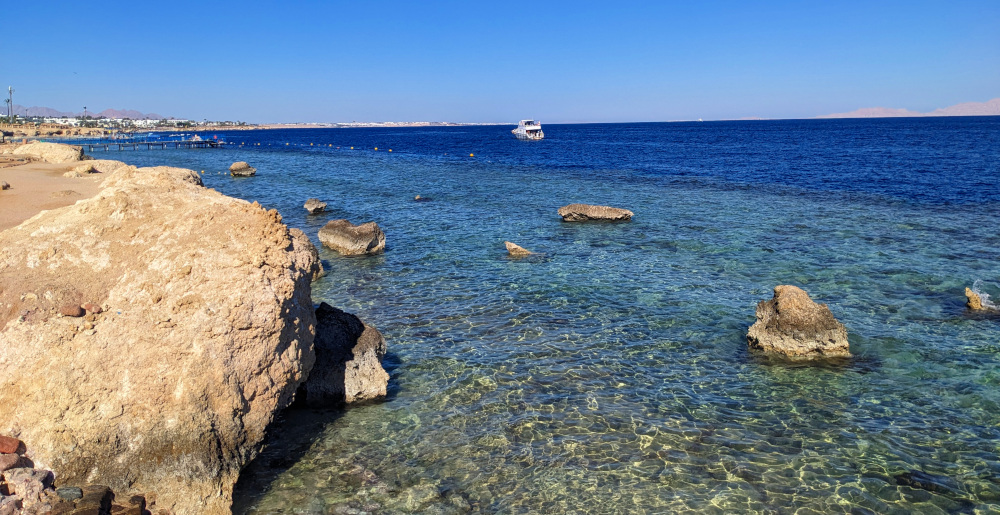“Why You Should Visit Egypt’s Unique Lakes: A Journey Beyond the Pyramids
Related Articles Why You Should Visit Egypt’s Unique Lakes: A Journey Beyond the Pyramids
- Exploring The Hidden Castles Of Egypt: Beyond The Pyramids And Pharaohs
- Hidden Gems: Unique Cities You Must See In Vietnam
- Top 10 Fascinating Villages In Argentina: A Journey Through Culture, Nature, And Charm
- China’s Best Kept Secrets: Unveiling Hidden Landmarks Beyond The Tourist Trail
- Experience Turkey Through Its Scenic Islands
Introduction
On this special occasion, we are happy to review interesting topics related to Why You Should Visit Egypt’s Unique Lakes: A Journey Beyond the Pyramids. Let’s knit interesting information and provide new insights to readers.
Table of Content
Why You Should Visit Egypt’s Unique Lakes: A Journey Beyond the Pyramids

Egypt, the land of pharaohs, pyramids, and the mighty Nile, is often envisioned as an arid landscape of golden sands and ancient monuments. While these iconic images hold true, Egypt’s natural beauty extends far beyond its deserts. Hidden within its vast expanse lie a collection of unique lakes, each offering a distinct experience and showcasing the country’s surprising ecological diversity. From saltwater wonders to freshwater oases, these lakes provide a refreshing contrast to the historical grandeur and are a must-see for any traveler seeking a deeper understanding of Egypt.
Beyond the Nile: Unveiling Egypt’s Aquatic Treasures
The Nile River has historically been the lifeline of Egypt, but its lakes contribute significantly to the country’s ecology and economy. These lakes are not just bodies of water; they are vibrant ecosystems, havens for biodiversity, and sources of livelihood for local communities. They offer opportunities for recreation, relaxation, and exploration, providing a unique perspective on Egypt’s natural wonders.
1. Lake Nasser: A Monumental Reservoir
Created by the construction of the Aswan High Dam in the 1960s, Lake Nasser is one of the largest artificial lakes in the world. Spanning across southern Egypt and into northern Sudan, this vast reservoir has reshaped the region’s landscape and ecology.
- Magnitude and Scale: Lake Nasser’s sheer size is awe-inspiring. Its waters stretch for nearly 500 kilometers (300 miles), creating a sense of boundless space.
- Historical Significance: The lake’s creation led to the relocation of numerous ancient monuments, including the temples of Abu Simbel, which were painstakingly moved to higher ground to prevent them from being submerged. Visiting these relocated temples is a highlight of any trip to Lake Nasser.
- Fishing and Wildlife: Lake Nasser is a thriving fishing ground, supporting a local fishing industry. It’s also home to a variety of wildlife, including crocodiles, turtles, and numerous bird species.
- Cruises and Exploration: A cruise on Lake Nasser offers a unique perspective on the region’s history and natural beauty. You can visit ancient sites, witness stunning sunsets, and observe the diverse wildlife that calls the lake home.
2. Lake Qarun: An Ancient Oasis
Located in the Fayoum Oasis, southwest of Cairo, Lake Qarun is a saltwater lake with a rich history and ecological significance.
- Ancient Origins: Lake Qarun is believed to be the remnant of a much larger ancient lake that once covered the Fayoum region. Over the centuries, the lake has fluctuated in size, but it has always been a vital source of water and life for the surrounding area.
- Birdwatching Paradise: Lake Qarun is a haven for birdwatchers, attracting a wide variety of migratory and resident bird species. Flamingos, herons, egrets, and various species of ducks and waders can be seen around the lake’s shores.
- Fayoum Oasis: The Fayoum Oasis itself is a fertile agricultural region, known for its fruit orchards, vegetable farms, and picturesque landscapes. Visiting Lake Qarun provides an opportunity to explore the oasis and experience its unique culture and traditions.
- Historical Sites: The Fayoum region is also home to several ancient archaeological sites, including the Hawara Pyramid and the Karanis ruins. These sites offer a glimpse into the region’s rich history and its importance in ancient Egypt.
3. The Bitter Lakes: A Salty Marvel
Located along the Suez Canal, the Great Bitter Lake and the Little Bitter Lake are saltwater lakes that are connected to the Red Sea.
- Suez Canal Connection: The Bitter Lakes play a crucial role in the operation of the Suez Canal. They act as a natural buffer, allowing ships to navigate the canal smoothly.
- High Salinity: The lakes’ high salinity is due to the evaporation of water in the hot desert climate. This high salinity supports a unique ecosystem, with specialized organisms adapted to the harsh conditions.
- Historical Significance: During World War II, the Bitter Lakes served as a temporary anchorage for ships waiting to transit the Suez Canal.
- Bird Migration: The Bitter Lakes are an important stopover point for migratory birds traveling between Europe and Africa. Thousands of birds pass through the area each year, making it a popular destination for birdwatchers.
4. Lake Burullus: A Coastal Lagoon
Located in the Nile Delta, Lake Burullus is a large coastal lagoon that is separated from the Mediterranean Sea by a narrow strip of land.
- Nile Delta Ecosystem: Lake Burullus is an integral part of the Nile Delta ecosystem, supporting a diverse range of plant and animal life.
- Fishing Industry: The lake is a major source of fish for the local communities, providing livelihoods for thousands of people.
- Bird Sanctuary: Lake Burullus is a designated Ramsar site, recognizing its importance as a wetland of international significance. It is home to a variety of bird species, including flamingos, pelicans, and various species of ducks and waders.
- Natural Beauty: The lake’s scenic beauty, with its reed beds, open waters, and diverse birdlife, makes it a popular destination for nature lovers and ecotourists.
5. Lake Manzala: A Delta Wetland
Another significant lake in the Nile Delta, Lake Manzala is a large, shallow lagoon that is connected to the Mediterranean Sea.
- Ecological Importance: Lake Manzala is an important wetland ecosystem, providing habitat for a wide variety of plant and animal species.
- Fishing and Agriculture: The lake supports a local fishing industry, and its fertile shores are used for agriculture.
- Environmental Challenges: Lake Manzala faces several environmental challenges, including pollution, sedimentation, and habitat loss. Efforts are underway to protect and restore the lake’s ecosystem.
- Birdwatching Opportunities: Despite the environmental challenges, Lake Manzala still offers opportunities for birdwatching, with a variety of migratory and resident bird species.
6. Wadi El-Rayan Lakes: A Desert Oasis
Located in the Wadi El-Rayan Protected Area, southwest of Cairo, the Wadi El-Rayan Lakes are two interconnected saltwater lakes that were created by the diversion of agricultural drainage water.
- Unexpected Creation: The lakes were formed in the 1970s as a result of agricultural drainage water being diverted into the Wadi El-Rayan depression.
- Desert Landscape: The lakes are surrounded by a stunning desert landscape, with sand dunes, cliffs, and canyons.
- Wildlife Haven: Despite their artificial origin, the Wadi El-Rayan Lakes have become a haven for wildlife, including birds, fish, and mammals.
- Recreational Activities: The lakes offer opportunities for swimming, boating, and other recreational activities.
- Waterfalls: One of the unique features of Wadi El-Rayan is its waterfalls, which are formed by the flow of water between the two lakes.
Planning Your Lake Adventure in Egypt
- Best Time to Visit: The best time to visit Egypt’s lakes is during the cooler months, from October to April.
- Accommodation: Accommodation options range from luxury hotels to budget-friendly guesthouses, depending on the location.
- Transportation: Transportation options include flights, trains, buses, and taxis.
- Tours and Activities: Consider booking a guided tour to explore the lakes and their surrounding areas.
- Respect the Environment: Be mindful of the environment and avoid littering or disturbing the wildlife.
Beyond the Tourist Trail: Discovering Egypt’s Hidden Gems
Visiting Egypt’s unique lakes offers a chance to escape the crowds and discover a different side of the country. It’s an opportunity to connect with nature, learn about local cultures, and experience the unexpected beauty of the Egyptian landscape. So, next time you plan a trip to Egypt, be sure to include a visit to one or more of these remarkable lakes. You won’t be disappointed.
Conclusion: A Refreshing Perspective on Egypt
Egypt’s lakes are more than just bodies of water; they are vital ecosystems, sources of livelihood, and havens for biodiversity. They offer a refreshing contrast to the country’s historical grandeur and provide a unique perspective on its natural wonders. By venturing beyond the pyramids and exploring these aquatic treasures, you can gain a deeper understanding of Egypt’s diverse beauty and its rich cultural heritage. So, pack your bags, grab your binoculars, and prepare to embark on an unforgettable journey to the unique lakes of Egypt.



3 thoughts on “Why You Should Visit Egypt’s Unique Lakes: A Journey Beyond The Pyramids”